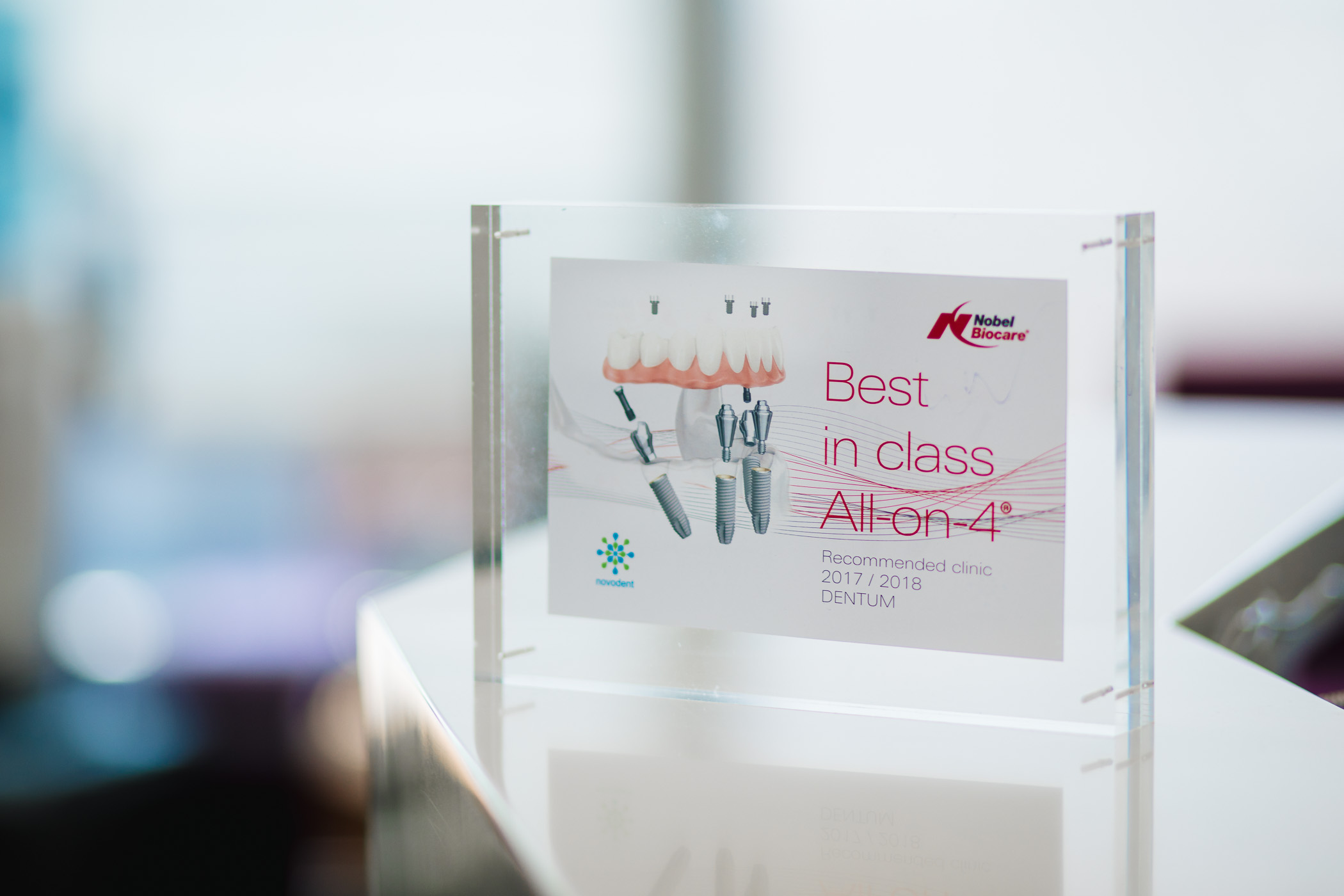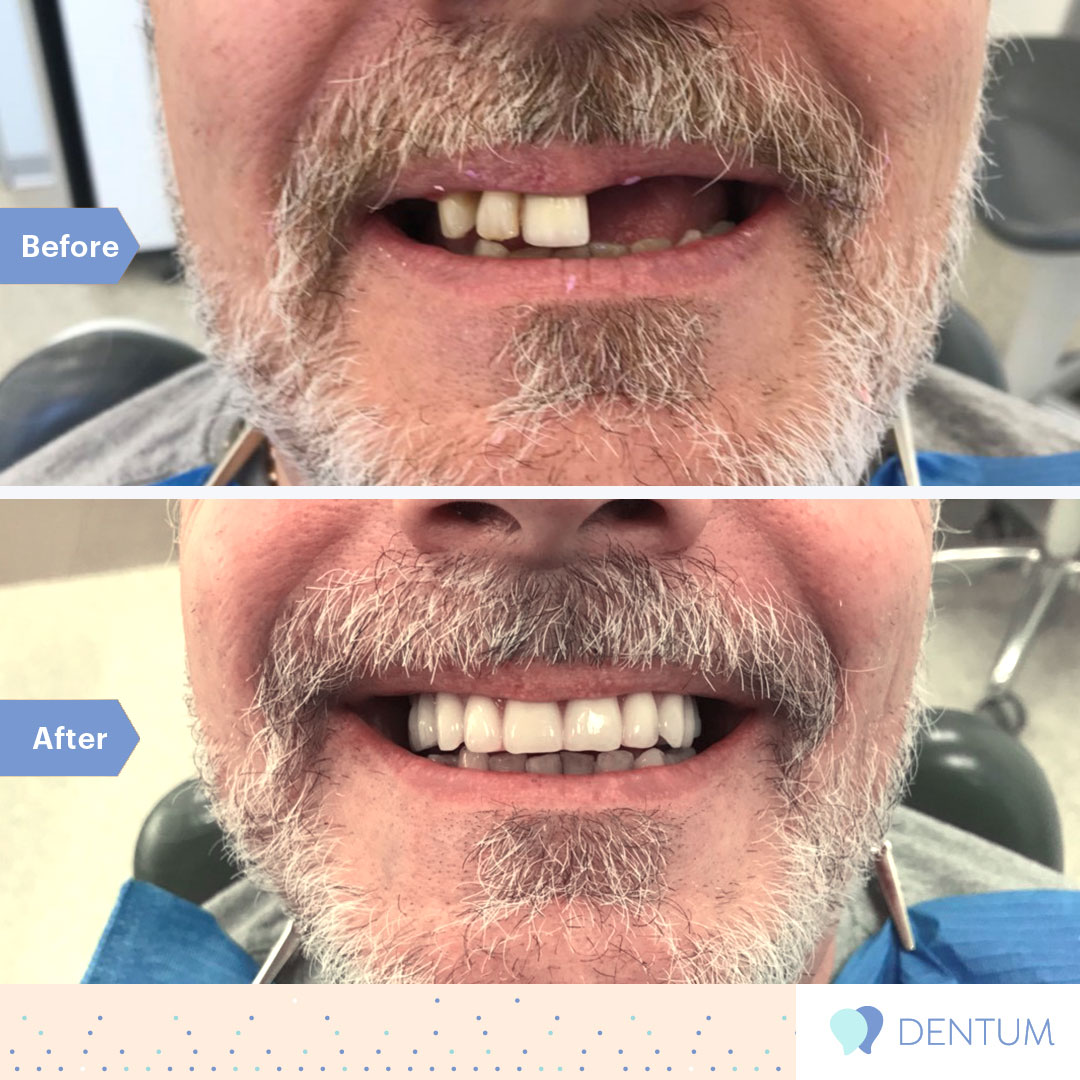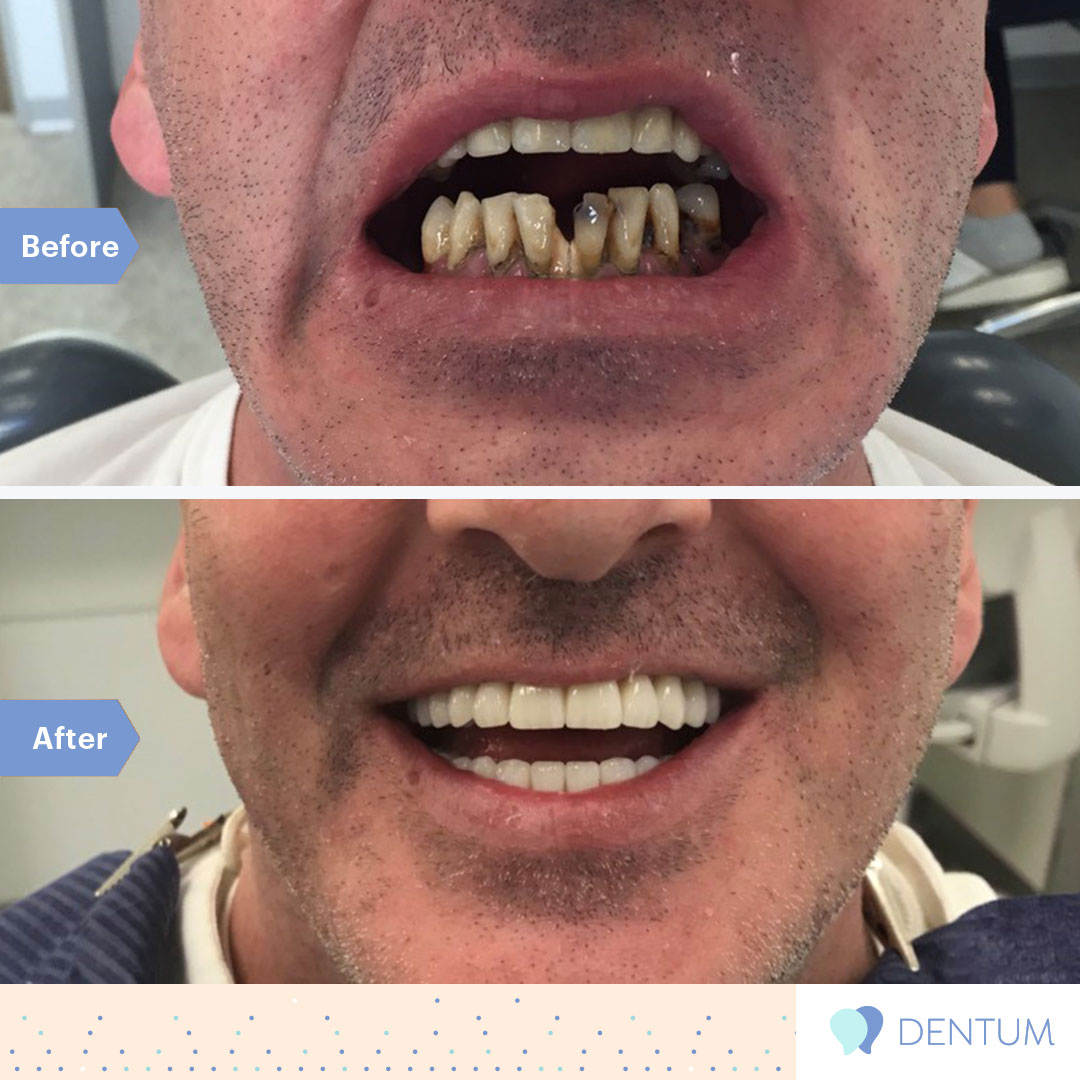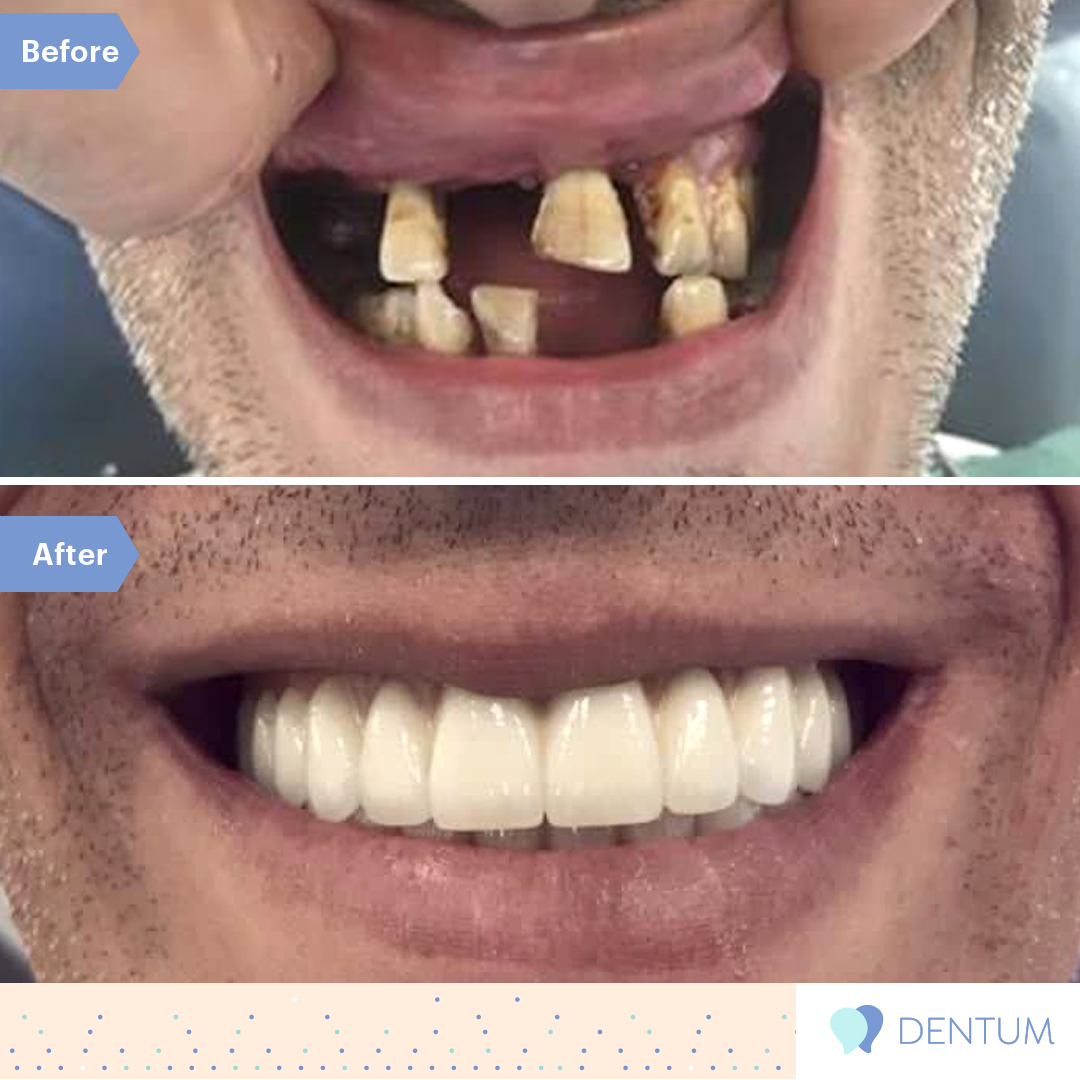
Knowing the difference between material options is key to ensuring you will be happy with the results in the long run.
The All-on-4® treatment concept is a cost-efficient, graftless solution that provides patients with a fixed full-arch prosthesis on the day of surgery.
We’re always talking about the importance of combining Nobel Biocare implants with the All-on-4 solution, however, there are more materials than just implants involved. There are several differences between the materials used when your restoration is fabricated in the dental lab.
There are three main types of All-on-4 restorations:
- Acrylic (temporary)
- Composite (permanent)
- Ceramic (permanent)
In this short guide, we will briefly explain the differences between these restorations and list the pros and cons, so you know what to look for when choosing the right All-on-4 treatment for you.
Acrylic All-on-4 restorations (basic quality)
Often times a clinic that offers the All-on-4 treatment concept at a really low price, much lower than other clinics, will use acrylic restorations. There’s nothing wrong with acrylic restorations per se, but beware - these are just temporary prosthetic solutions and are not meant to last forever.
A study showed that over a five-year period, ceramic and acrylic prosthetics performed similarly in terms of oral health and bite force. However, the researchers also identified a higher sulcus flow in the acrylic dentures after about three years. Higher rates of sulcus flow are linked to more inflammation and possible bone degradation. The findings suggested that given more time, acrylic dentures may fail prematurely. Acrylic dentures also showed more abrasion, while the artificial teeth cracked in a quarter of the patients monitored, while ceramic ones remained intact.
This all goes to show that the lower cost of the acrylic dentures probably won’t be worth it in the long run, as you will likely have to fix naturally occurring damage to acrylic dentures. In most cases, it may even be necessary to remove the entire structure and replace it after several years.
At Dentum, we don’t offer acrylic All-on-4 restorations for final work, but exclusively as temporary teeth.
PROS
- lower cost
- easy to replace
CONS
- Standardized shapes and sizes, no space for personal wishes
- Do not last long
- Break easier and are more prone to damage
may stain due to poor oral hygiene - Greater costs in the long run

Composite All-on-4 restorations (premium quality)
Composite All-on-4 restorations are made of a titanium or BIO HPP milled construction. If you choose this material, it is extremely important to have in mind that the constructions used for making All-on techniques are milled or printed, because only this enables precise implant attachment (≤3 μm) and the passivity of the work itself. Make sure to ask your dentist about this! One of the greatest benefits of composite is that it can be maximally individualized to suit your preferences. Unlike ceramics, there is less rigidity, which means it is less prone to cracking.
PROS
- material that is very similar to natural teeth
- aesthetically very pleasing
- possibility to maximally individualize final work
- very durable
CONS
- due to similarity to natural teeth this material can get stained (easily cleaned)
- more expensive than acrylic

Ceramic All-on-4 restorations (premium quality)
To get a ceramic All-on-4 restoration, you will need a professional dentist who works with highly skilled dental technicians, as the creation of ceramic All-on-4 restorations is highly complex and takes a great deal of skill. For this method, individual zirconia or metal crowns are cemented to the implant bridge framework and the result is a highly aesthetic, strong denture.
PROS
- highly aesthetic and natural looking
- never stains
- very durable
- in case of damage, the damaged tooth can be replaced, no need to replace the entire construction
CONS
- Expensive
- ceramic constructions are heavier than acrylic and composite constructions
As with most things in life - there is no one solution that fits all. That’s why we offer a free first check-up with consultations with our dentists, to discuss your wishes and needs, so that we can identify the best option for you.

Don’t hesitate to contact us so we can help arrange your visit to our clinic!